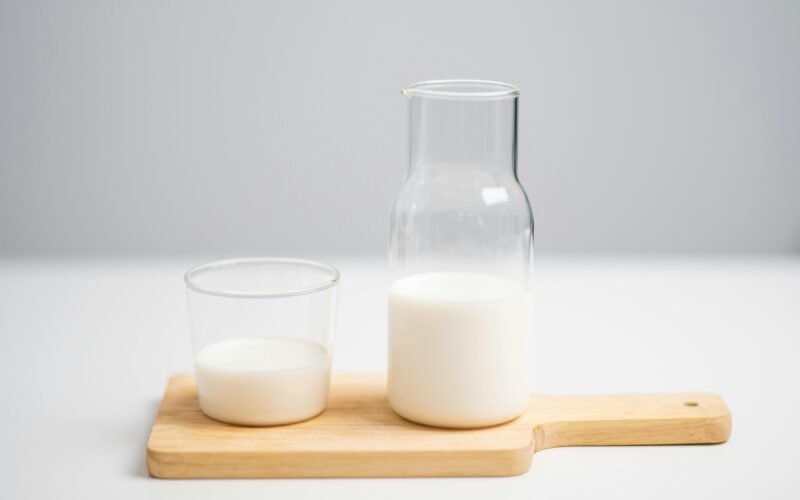
Riddet researcher recognised for her work on the digestibility of various forms of processed and unprocessed milk.
A food scientist’s research looking at the digestive effects of milk could pave the way for tailored, added-value dairy products.
The work by Riddet Institute post-doctoral researcher Natalie Ahlborn looked at processed milk and its effects on digestion and nutrient absorption, as part of the Ministry of Business, Innovation and Employment-funded New Zealand Milk Means More research programme at the Riddet Institute, based at Massey University in Palmerston North.
Ahlborn said there is a lot of value in milk.
“It’s a really great source of nutrition and really milk is one of the very few food sources that we consume that exists with the sole purpose of providing nutrition for mammals.
“We already have this amazing product and if we can figure out how to harness that, and really get the most out of it and then apply that product to the person who needs it the most, that’s really where we get the most value out of it.”
Pasteurisation, UHT treatment and homogenisation are commonly used to process milk, but Ahlborn wanted to know what these treatments meant for digestion and nutrient uptake.
She examined milk nutrient digestion and absorption in the gastrointestinal tract, finding that the protein in UHT milk was digested the fastest, followed by the protein in pasteurised homogenised milk, then pasteurised non-homogenised and, finally, raw milk.
Curd formation and stomach emptying of solid matter and lipids were also measured. There were substantial differences in digestion of the fats and solid portions of the milks.
The research has created a fundamental understanding of how processing affects the gastric digestion of milk protein, and how this might contribute to milk’s nutritional outcomes.
Ahlborn said what initially got her interested as an undergraduate was why some people have issues digesting milk proteins.
While the structures of proteins, fats and other micronutrients are changed when heated or homogenized, no one had ever really gone and looked at what that means for our digestion.

“For a very, very long time, it was just generally assumed that because these milks still have the exact same nutritional composition, they’ll have the same amount of fat, the same amount of protein and we would have the exact same nutritional outcome from them.
“But what that doesn’t consider is the effect of the milk nutrients’ structure. That’s kind of where my work comes in – trying to figure out what these changes to the milk proteins and the milk fat mean for our digestion and absorption and the long term of that has been the health outcomes associated with that.”
It could also help lead to scientists having a wider understanding of the digestion and absorption of milk’s micronutrients, she said.
For example, the calcium in milk is attached to milk’s protein and until that wider understanding is achieved, it is hard to be able to pinpoint exactly what is occurring with this mineral.
Her research was been recognised with Ahlborn winning second prize in the International Dairy Federation Professor Pavel Jelen Early Career Scientist Prize for scientists who gained their highest degrees three years ago or less.
Ahlborn will receive a printed certificate recognising the achievement and an honorarium of €200 (NZ$360). She will attend the IDF World Dairy Summit 2024 to be held in Paris, France, from October 15 to 18 2024 to collect her award and present her research.
NZ Milk Means More project leader and Ahlborn’s PhD supervisor Professor Warren McNabb said the win was an amazing opportunity for Ahlborn.
“Natalie has done an outstanding job with her research. It’s not every day that a global entity like the IDF takes notice of someone and then pays for them to travel to Paris to receive an award. It’s quite a big deal.”
You can now read the most important #news on #eDairyNews #Whatsapp channels!!!
🇺🇸 eDairy News INGLÊS: https://whatsapp.com/channel/0029VaKsjzGDTkJyIN6hcP1K

























